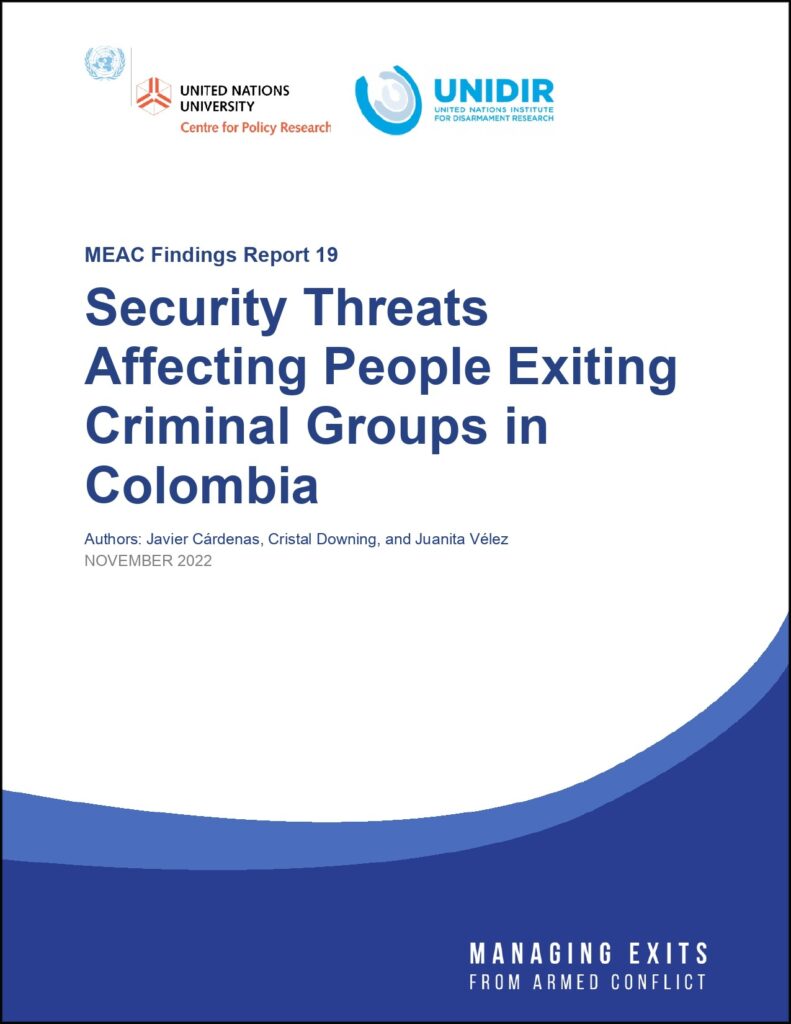This report is based on data collected as part of original survey research conducted with individuals formerly associated with criminal groups – including FARC dissident groups – who were interviewed between April and September 2022.
This survey took place thanks to the cooperation agreement established between MEAC and the Reincorporation and Normalization Agency (ARN by its Spanish acronym) in Colombia; MEAC is grateful to the ARN for its collaboration in this work. The interviews took place in three cities in Colombia – Bogotá, Medellín, and Cali – where the ex-associates were participating in the differential assistance process led by the ARN.
The survey inquired about their conflict experiences and their transition to civil life, economic situation, personal security, psychosocial vulnerabilities, and support networks. This report focuses on security threats that affect the exit process in ways that could increase the likelihood of recidivism and decrease the likelihood that participants make full, sustained, and positive transitions to civilian life. If this process is unable to support successful transitions out of armed groups, it will not achieve the goal of winnowing the ranks of – and ultimate dismantling – active armed groups.
These findings may be useful to the Colombian government and other governments, UN, and NGO partners working to address conflict and build peace amidst the changing landscape of insecurity and vulnerability in Colombia. The report ends with an examination of key policy and programmatic implications of these findings.
The version in Spanish is available here.
Citation: Javier Cárdenas, Cristal Downing, and Juanita Vélez (2022) "Security Threats Affecting People Exiting Criminal Groups in Colombia," MEAC Findings Report 19, United Nations University, New York.
